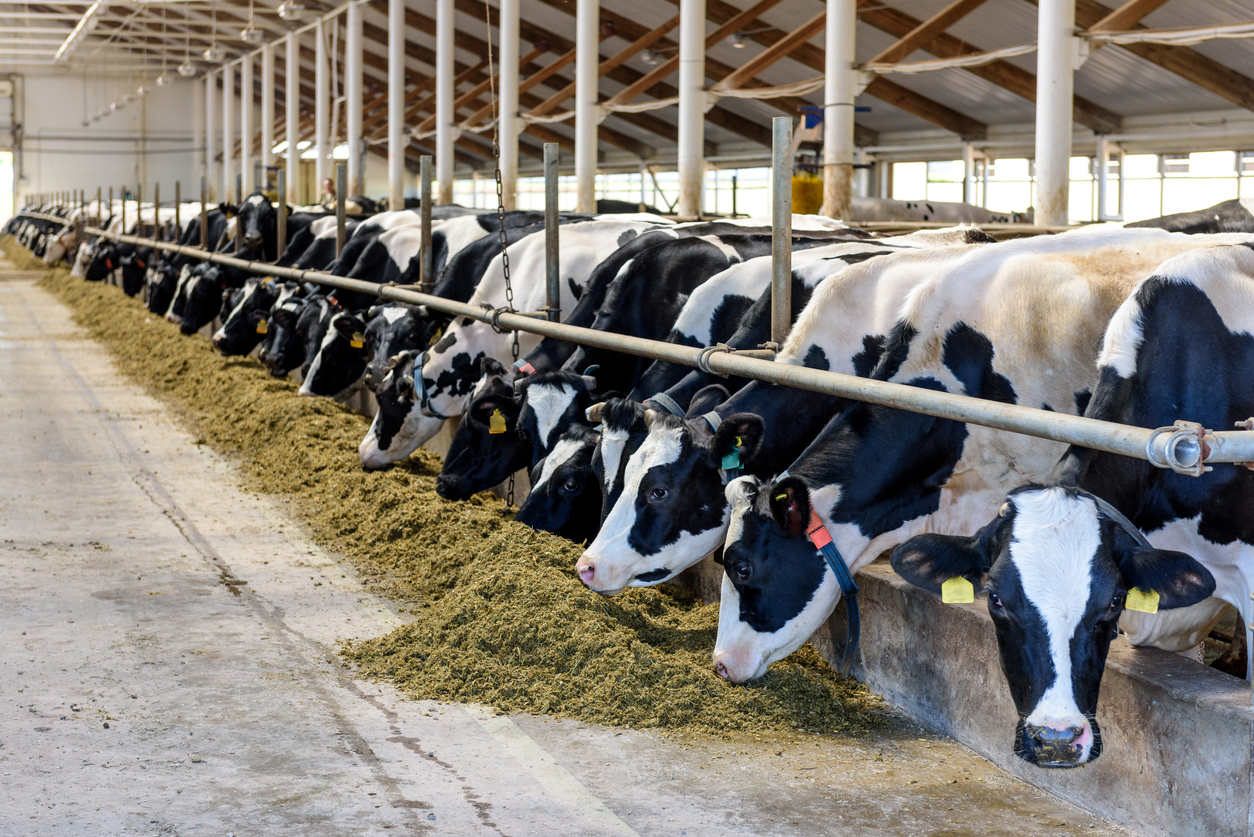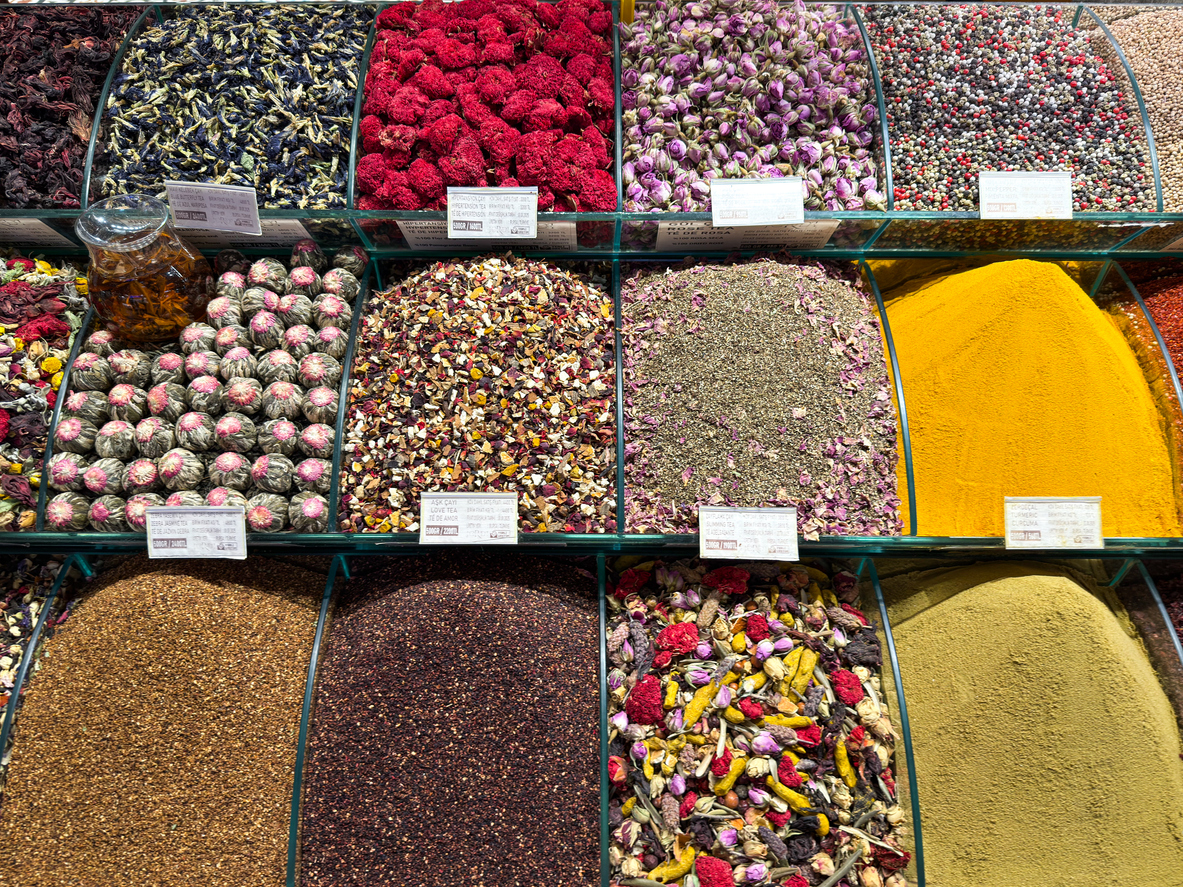Diversifying Agricultural Practices: How Mixed Farming is Revolutionizing Nigeria’s Agriculture Sector
Diversifying Agricultural Practices: How Mixed Farming is Revolutionizing Nigeria’s Agriculture Sector
Are you ready to discover a game-changing approach that is transforming Nigeria’s agriculture industry? Brace yourself for an exciting exploration into the world of mixed farming, where traditional practices are being infused with innovative techniques. In this blog post, we will unveil the wonders of diversifying agricultural practices and how it is revolutionizing Nigeria’s agriculture sector. Prepare to be amazed as we delve into the untapped potential of mixed farming and its profound impact on sustainability, productivity, and economic growth. Get ready to witness a remarkable shift in paradigms as farmers across Nigeria embrace this groundbreaking solution!
Introduction to Mixed Farming in Nigeria
Introduction to Mixed Farming in Nigeria
Mixed farming, also known as diversified farming, is a type of agricultural practice that involves the cultivation of different crops and rearing of various livestock on the same piece of land. This method of farming has been gaining popularity in Nigeria over the past few years due to its numerous benefits for both farmers and the environment.
In traditional agriculture, Nigerian farmers would typically focus on growing only one or two major crops such as rice, maize, or cassava. However, with changing climate patterns and increasing demand for diverse food products, many farmers have started incorporating mixed farming into their practices. This has not only improved their productivity but also helped them mitigate the risks associated with relying on a single crop.
One of the major advantages of mixed farming is its ability to increase soil fertility. By rotating crops and integrating livestock into their farms, farmers can reduce soil erosion and improve soil structure. Livestock manure serves as a natural fertilizer that adds essential nutrients back into the soil, making it more productive for future plantings.
Moreover, mixed farming allows farmers to diversify their income streams. With different crops and livestock being produced on the same farm, they are less vulnerable to market fluctuations and can generate income throughout the year instead of relying on just one harvest season. This has proven to be especially beneficial for small-scale farmers who previously struggled with financial instability.
Another significant benefit of mixed farming is its positive impact on sustainable land use practices. In Nigeria, where land degradation is a prevalent issue due to intensive monoculture agriculture, mixed farming provides an alternative solution by promoting biodiversity and reducing environmental degradation.
Additionally, mixed farming enhances food security by providing a variety of food products all year round. With diverse crops being grown simultaneously on one farm, there is a reduced risk of crop failure due to weather conditions or diseases. This helps ensure that there is always food available for both consumption and sale in local markets.
Mixed farming has revolutionized the Nigerian agriculture sector by promoting sustainable land use practices, diversifying income streams, and increasing food security. It is a highly promising practice that has the potential to transform the country’s agricultural landscape and contribute to its economic growth. In the following sections of this article, we will delve deeper into how mixed farming is being implemented in different parts of Nigeria and its impact on farmers and communities.
Benefits of Mixed Farming for Nigerian Farmers
Mixed farming is an agricultural practice that involves growing multiple crops and raising different types of livestock on the same piece of land. In recent years, this method has gained popularity in Nigeria due to its numerous benefits for farmers. Let’s take a closer look at how mixed farming is revolutionizing the country’s agriculture sector.
1. Increased Crop Yield: One of the main advantages of mixed farming is that it leads to higher crop yields. By planting a variety of crops, farmers can utilize their land more efficiently and prevent soil nutrient depletion. Different plants have different nutritional needs, so rotating crops can help replenish the soil and improve overall productivity.
2. Risk Management: In traditional agriculture, if one crop fails due to unfavorable weather conditions or pests, it can lead to significant financial losses for farmers. However, with mixed farming, this risk is greatly reduced as diversifying crops ensures that even if one crop fails, there are other sources of income available.
3. Improved Soil Health: Growing the same crop repeatedly on the same land can deplete the soil nutrients and decrease its fertility over time. Mixed farming helps maintain healthy soil by rotating crops that have different nutrient requirements and incorporating livestock manure into the ground through grazing or fertilization.
4. Sustainable Resource Utilization: Mixed farming allows for efficient utilization of resources such as water, space, and energy. Instead of using large amounts of water for irrigation or keeping animals confined in feedlots, mixed farming relies on natural processes like rotational grazing to manage resources sustainably.
5. Diversified Income Streams: By combining crop cultivation with animal husbandry in mixed farming systems, farmers have multiple sources of income throughout the year instead of relying solely on seasonal crops for revenue generation.
6. Reduced Input Costs: Another advantage of mixed farming is cost savings on inputs such as fertilizers and pesticides since diverse cropping systems tend to be less susceptible to pests and diseases compared to monoculture practices.
7. Enhanced Biodiversity: Mixed farming promotes biodiversity by providing a variety of habitats for different plant and animal species to thrive. This, in turn, helps maintain a balanced ecosystem and contributes to the sustainability of agriculture.
Mixed farming offers numerous benefits for Nigerian farmers, including increased crop yield, risk management, improved soil health, sustainable resource utilization, diversified income streams, reduced input costs, and enhanced biodiversity. By embracing this practice, farmers can not only improve their own livelihoods but also contribute towards the overall development and progress of Nigeria’s agriculture sector.
Case Study: Wigmore Trading and their Impact on Sustainable Agriculture
Case Study: Wigmore Trading and their Impact on Sustainable Agriculture
In recent years, there has been a growing concern for the sustainability of agriculture practices around the world. The traditional methods of farming have been criticized for their negative impact on the environment and limited ability to meet the increasing demand for food. However, in Nigeria, there is a growing movement towards mixed farming as a more sustainable approach to agriculture. One company that has played a significant role in this movement is Wigmore Trading.
Wigmore Trading is a leading agricultural supply company that specializes in providing high-quality inputs and equipment to farmers across Nigeria. They have been at the forefront of promoting sustainable agriculture practices and have made significant contributions to revolutionizing Nigeria’s agriculture sector.
One of the main ways Wigmore Trading has impacted sustainable agriculture is through their promotion of crop rotation and diversification. Traditional farming methods often involve planting only one crop per season, which can deplete soil nutrients and increase the risk of pests and diseases. Wigmore Trading encourages farmers to rotate crops between seasons, which helps to maintain soil fertility and reduce pest infestations. They also promote diversifying crops grown on a single farm, reducing dependence on one crop, which can be vulnerable to market fluctuations or climate change impacts.
Another notable impact of Wigmore Trading on sustainable agriculture is their emphasis on organic farming practices. They provide farmers with organic fertilizers, pesticides, and other inputs that are free from harmful chemicals commonly used in conventional farming methods. By promoting organic farming techniques, they help protect both human health and the environment while producing healthier food products.
Wigmore Trading also promotes efficient water management techniques such as drip irrigation systems that help conserve water resources while ensuring optimal plant growth. This not only saves costs for farmers but also reduces water wastage – an increasingly important factor given Nigeria’s rapidly dwindling water resources.
Furthermore, through partnerships with research institutes and government agencies like Agricultural Development Programs (ADP), Wigmore Trading has facilitated the adoption of modern farming technologies and practices, such as precision agriculture and agroforestry. These methods help to increase productivity while reducing resource use and environmental impacts.
Wigmore Trading’s commitment to promoting sustainable agricultural practices has had a significant impact on Nigeria’s agriculture sector. By encouraging crop rotation, organic farming, efficient water management, and the adoption of modern technologies, they have helped farmers improve their yields while protecting the environment. Their efforts have not only benefited individual farmers but also contribute to the overall growth and sustainability of Nigeria’s agriculture industry.
Challenges and Solutions for Implementing Mixed Farming in Nigeria
Challenges and Solutions for Implementing Mixed Farming in Nigeria
While mixed farming has been shown to have numerous benefits for the Nigerian agriculture sector, it also comes with its own set of challenges. These challenges can make it difficult for farmers to fully adopt this practice, hindering the potential growth and development of mixed farming in the country. In this section, we will discuss some of the major challenges faced by Nigerian farmers when implementing mixed farming, as well as potential solutions to overcome them.
1. Limited Access to Resources: One of the main challenges faced by small-scale farmers in Nigeria is limited access to resources such as land, water, and capital. Mixed farming requires a diverse range of resources to be successful, including both arable land for crop production and pastureland for livestock grazing. However, due to population growth and urbanization, there is an increasing competition for land use between agriculture and other sectors. This makes it challenging for farmers to secure enough land to carry out mixed farming effectively.
Solution: To address this challenge, government policies should prioritize providing small-scale farmers with access to affordable land through schemes such as leasehold or rent-to-own programs. Additionally, there should be incentives for large-scale commercial farms to partner with smallholder farmers and provide them with necessary resources.
2. Lack of Knowledge and Skills: Another significant challenge facing Nigerian farmers is a lack of knowledge and skills on how to implement mixed farming practices effectively. Many smallholder farmers have grown up practicing traditional single-crop agriculture methods that do not require much technical expertise or training. As a result, they may struggle with understanding how different crops can complement each other or how best to integrate livestock into their existing farm systems.
Solution: The government can play a crucial role in addressing this challenge by providing training programs on integrated crop-livestock systems targeted at smallholder farmers across the country. These programs should focus on teaching practical skills such as rotational grazing, crop rotation, and intercropping techniques.
3. Market Access and Infrastructure: Farmers face significant challenges in accessing markets for their diverse range of produce from mixed farming. The lack of adequate infrastructure such as road networks, storage facilities, and processing centers makes it difficult for farmers to transport and store their goods effectively. This results in a high level of post-harvest losses and reduced incomes for farmers.
Solution: The government should invest in building rural infrastructure to improve market access for farmers. This includes developing road networks, providing storage facilities, and establishing processing centers in rural areas. Additionally, there should be initiatives to connect smallholder farmers with larger markets through cooperatives or farmer associations.
While there are challenges to implementing mixed farming in Nigeria, they can be overcome with effective policies and interventions by the government. By addressing issues related to resource access, knowledge and skills, and market infrastructure, the country can fully harness the potential benefits of mixed farming practices. It is essential that this sector receives the necessary support and investment to promote sustainable agricultural development in Nigeria.
Success Stories of Mixed Farming in Nigeria
Mixed farming, also known as diversified farming, is a practice in which different crops and livestock are raised on the same piece of land. This method has gained popularity in Nigeria over the years due to its numerous benefits such as increasing crop yield, improving soil fertility and providing a more stable source of income for farmers. In this section, we will explore some success stories of mixed farming in Nigeria and how it has revolutionized the country’s agriculture sector.
One of the success stories of mixed farming in Nigeria can be found in Kwara state, where a farmer named Mr. Adewale Adeoye started practicing mixed farming on his 20-acre farmland. He used to rely solely on maize cultivation but after attending a workshop on mixed farming, he decided to diversify his crops by adding vegetables and poultry to his farm. The result was astounding; not only did he experience an increase in crop yield but also had a steady supply of eggs and meat from his poultry farm throughout the year. As a result, Mr. Adeoye’s income increased significantly, allowing him to expand his farm and improve his family’s standard of living.
Another inspiring story comes from Ogun state where Mrs. Bolanle Ajayi started practicing mixed farming on her small plot of land after facing challenges with monocropping. She grows cassava, maize, yam, and vegetables while also rearing goats and chickens on her farm. By doing so, she has been able to provide food for her family all year round as well as sell surplus produce for extra income. Mrs.Ajayi’s success has encouraged many other farmers in her community to adopt mixed farming practices.
The government has also recognized the potential of mixed farming and has implemented several initiatives to support small-scale farmers across Nigeria. One such initiative is the Growth Enhancement Support Scheme (GESS), which provides inputs such as seeds and fertilizers at subsidized rates to farmers practicing mixed cropping. This has not only improved the productivity of small-scale farmers but also increased their income and overall standard of living.
In addition to economic benefits, mixed farming is also beneficial for the environment. By growing different crops on the same piece of land, farmers can reduce soil erosion, improve soil fertility and control pests and diseases without using harmful chemicals.
These success stories are a testament to the positive impact of mixed farming in Nigeria. It has not only improved the livelihoods of farmers but also contributed to food security and sustainability in the country. The government’s support combined with the willingness of farmers to embrace new techniques has truly revolutionized Nigeria’s agriculture sector through diversified agricultural practices like mixed farming.
Future Outlook and Potential for Growth in the Agricultural Sector with Mixed Farming
Future Outlook and Potential for Growth in the Agricultural Sector with Mixed Farming
Mixed farming, also known as integrated farming, is a sustainable agricultural practice that involves growing different crops and raising livestock on the same farmland. This approach has gained popularity in Nigeria’s agriculture sector due to its numerous benefits such as increased productivity, reduced risks, and improved soil health. As a result, there is immense potential for growth and success in this sector through mixed farming.
One of the major advantages of mixed farming is its potential to increase crop yields. By integrating crops with livestock production, farmers can utilize animal manure as organic fertilizer for their crops. This leads to healthier soil with higher nutrient content, resulting in better crop growth and yields. Additionally, mixed farming reduces the risk of crop failure from pests or diseases since different crops are grown together, making it difficult for any one pest or disease to affect all the plants.
Another factor contributing to the potential growth of mixed farming in Nigeria is its ability to diversify income streams for farmers. By combining multiple forms of agricultural production on one farm, farmers have more opportunities for profit-making. For example, during periods when crop prices are low or unfavorable weather conditions affect crop production, farmers can rely on income from their livestock operations instead.
Furthermore, mixed farming promotes sustainability by reducing environmental degradation caused by monoculture practices. Crop rotation helps maintain soil fertility by preventing depletion of nutrients specific to a particular crop while also controlling weed growth naturally. The integration of livestock allows for proper waste management as animal manure can be used to fertilize fields rather than being disposed of improperly.
The future outlook for mixed farming in Nigeria’s agriculture sector is promising due to government support and initiatives promoting sustainable agricultural practices. Organizations such as AgroNigeria have been actively encouraging smallholder farmers across the country to adopt integrated farming methods through education and training programs.
Mixed farming has revolutionized Nigeria’s agriculture sector by offering a more sustainable and profitable alternative to traditional farming practices. Its potential for growth is evident in its ability to increase crop yields, diversify income streams, promote sustainability, and garner government support. It is clear that mixed farming will play a significant role in shaping the future of agriculture in Nigeria.
Conclusion: The Importance of Diversifying Agricultural Practices in Nigeria
Conclusion: The Importance of Diversifying Agricultural Practices in Nigeria
In recent years, the agricultural sector in Nigeria has faced numerous challenges such as climate change, soil degradation, and limited access to resources. These challenges have significantly affected crop production and food security in the country. To address these issues, there has been a growing emphasis on diversifying agricultural practices through mixed farming. This practice involves integrating different crops, livestock, and fish within a single farm system.
The importance of diversifying agricultural practices in Nigeria cannot be overstated. It not only enhances productivity but also provides numerous environmental, social and economic benefits. One of the key advantages of mixed farming is improved soil fertility. By rotating crops and integrating livestock into the farming system, it helps to replenish essential nutrients in the soil, reducing the need for chemical fertilizers that can be harmful to the environment.
Moreover, mixed farming promotes sustainable land use by maximizing land productivity. With limited arable land available for agriculture in Nigeria due to rapid population growth, adopting mixed farming can help farmers make better use of their land by producing multiple crops simultaneously. This reduces pressure on scarce land resources while increasing overall yields.
Diversifying agricultural practices also contributes to increased income for small-scale farmers. By incorporating livestock or fish into their farms, farmers can have an additional source of income from selling meat or dairy products. Mixed farming also provides opportunities for value addition and agro-processing activities which can further boost farmers’ incomes.
Furthermore, diversified agriculture is crucial for ensuring food security in Nigeria. By growing different types of crops on one piece of land rather than relying on a single crop monoculture system, it reduces vulnerability to pests and diseases while providing a diverse range of nutritious foods for consumption.
In addition to its practical benefits, promoting diversified agriculture aligns with global efforts towards sustainable development goals (SDGs). It supports SDG 2- Zero Hunger by increasing food production and SDG 12- Responsible Consumption and Production by promoting sustainable farming practices. It also contributes to SDG 13- Climate Action by reducing greenhouse gas emissions from agriculture through the integration of livestock and crop production.
The need for diversifying agricultural practices in Nigeria is evident. Mixed farming has proven to be a viable solution to the challenges facing the sector while providing numerous benefits for farmers, consumers, and the environment. As such, it is essential for government agencies, extension services, and other stakeholders to promote and support this practice to achieve a more sustainable and resilient agricultural sector in Nigeria.








Comments are closed.